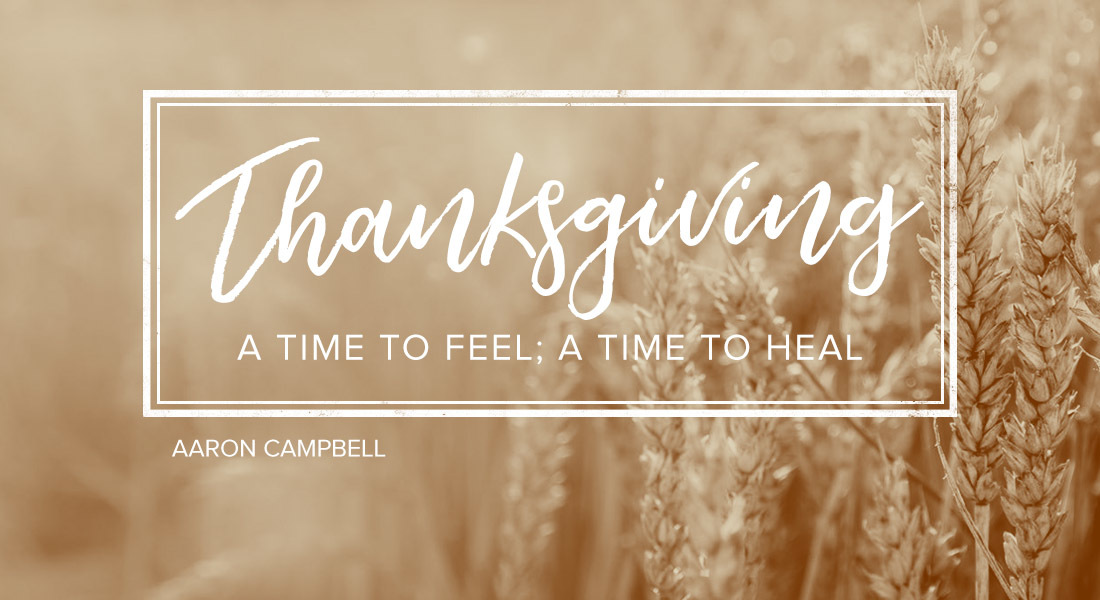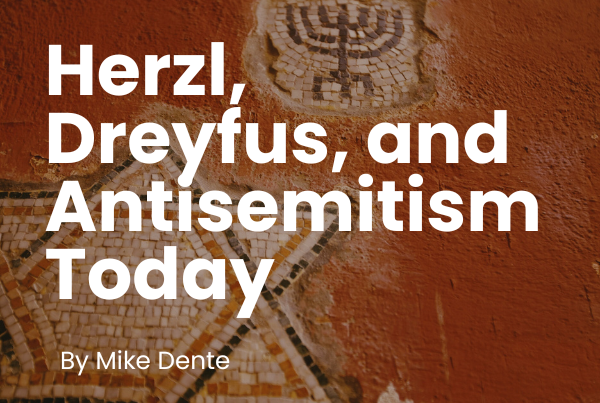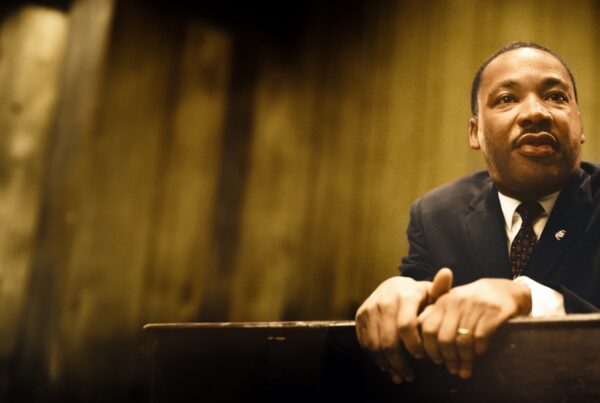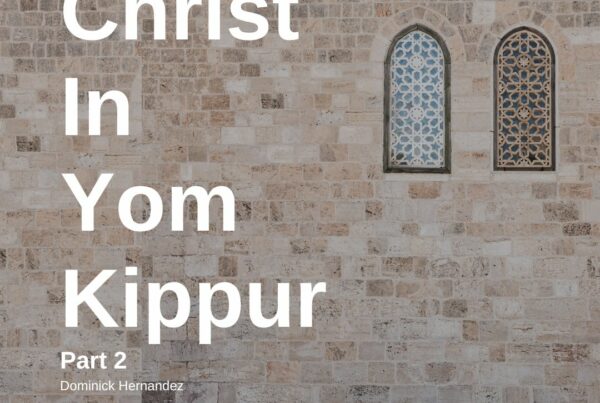
“The antidote to feel-good history is not feel-bad history, but honest and inclusive history.”
– James Loewen, University of Vermont professor, bestselling author.
Salt or pepper? Onion or garlic? On your Thanksgiving turkey, which one from each of these savory combos would you give up? Rather tough choice for the “true foodie.” In fact, if enough “true foodies” were polled on this question, I’m quite sure more than one would cut around the whole “either/or” paradigm and simply ask, “Why do we have to choose one or the other to begin with?”
Now, is there a point to this food lover’s intro, or is my excitement over claiming the “drum and thigh” from this week’s holiday bird simply betraying me? But there is a point—a very big one, in fact.
You see, when one starts talking about the beloved traditions of America’s present-day Thanksgiving culture alongside the horrific accounts of America’s bloody past with American natives and one of the earliest Thanksgiving feasts, many will feel that they suddenly have to choose one or the other—“either/or:” Do I retain my ignorance so I can continue enjoying the regularly scheduled program of big menus and big family gatherings—chanting “Happy Thanksgiving” guilt-free? Or by acknowledging the horrors upon which this holiday was built, do I have to surrender the entire tradition I hold so dearly?
The good news is that we don’t have to choose either/or. With the Bible as one’s authority and guide, we can acknowledge the ugliness, injustice and pain of the past—including present-day implications for countless natives—and yet, still redeem present-day Thanksgiving in the context of the Gospel.
Thus, the Christian is free to enjoy Thanksgiving as a day to “count our blessings” (Psalm 103:2), to reflect on challenges that have strengthened our faith (James 1:2-4), to provide for our own (1 Timothy 5:8), and to become all things to all men (1 Corinthians 9:19-23), redeeming opportunities to share Christ’s love (Ephesians 5:16). Just as we seize Christmas Day as an opportunity to celebrate and share the story of Christ’s blessed incarnation—knowing that December 25 is not the real birthday of Jesus, but rather some fixed date decreed by Pope Julius I (340 A.D.)—in the same way, Christians can use Thanksgiving to give thanks for the Gospel and the wonderful cross—knowing the earliest Thanksgiving revolved around much of what God hates. Also, we can seize Thanksgiving as a time to “get understanding with all our might” (Proverbs 4:7) and also to weep with those who weep (Romans 12:15).
Much of what we have learned in school about events revolving around the Thanksgiving holiday has been watered down or simply false.
As the late historian William F. Buckley once stated, “History is the polemics of the victor;” meaning whoever wins the battle gets to tell the story of how it happened—be it fact, or mere fiction pushed as fact. For example, in school you probably learned about the Pequot War, the battle between early colonists and the Pequot tribe. Our textbook more than likely told us that this was an “armed conflict” over trade; but in reality, it was a massacre committed by the colonists against unarmed Pequot natives. 700 Pequot natives (all that remained of the original 8,000 after years of dying from diseases brought from Europe) were ambushed and slaughtered—men, women and children—as they slept. The Pequot Massacre sealed the fate of the Pequot tribe, bringing them to extinction. It was after this gruesome massacre that the governor of the Massachusetts Bay Colony called for a Day of Thanksgiving to celebrate the victory in 1637. Some stories say that this celebration was even marked by colonists kicking the decapitated heads of natives up and down the streets like balls.
Here is a description of the Pequot Massacre according to the late William Bradford (1590-1657), governor of Plymouth Colony and signatory to The Mayflower Compact, in his journal, Of Plymouth Plantation:
“Those that [escaped] the fire were slain with the sword; some hewed to pieces, others run through with swords, so as they quickly dispatched, and very few escaped. It was conceived they thus destroyed about 400 at this time. It was a fearful sight to see them frying in the fire, and the streams of blood quenching the same, and horrible was the stench and the scent thereof, but the victory seemed a sweet sacrifice, and they gave the prayers thereof to God, who had wrought so wonderfully for them, thus to inclose their enemies in their hands, and gave them so speedy a victory over so proud and insulting an enemy.”
To cover up these blatant war crimes, and so many others, the colonists “[prepared]…quantities of propaganda to overpower their own countrymen’s scruples. The propaganda gradually took standard form as an ideology with conventional assumptions and semantics. We live with it still.”1
“We live with it still…”
Strong words to digest, yet we do live with the impact of these and other acts committed against the indigenous people of North America. On the Pine Ridge Reservation and other reservations where natives were forced to relocate, men now experience a life expectancy that is close to 60% of the life expectancy of the rest of America. Forced to move to these arid, undesirable lands, the natives on these reservations were forced to rely on government aid (welfare) for survival. No longer could they harvest familiar crops or hunt buffalo herds, because they could not leave the reservation to hunt. (Not to mention how the colonists killed millions of buffalo for their hides, leaving their meat to rot in the sun and almost rendered the animal extinct). So all this being said, is it any wonder the rate of diabetes on Pine Ridge is 800% higher than the U.S. average? Not to mention that the infant mortality rate is 300% higher than the national average and the highest in the country. The teenage suicide rate is 150% higher than the national average. We should all weep when we read about these lasting effects.
Here is an interview from when ABC News journalist, Diane Sawyer, journeyed into the Pine Ridge Reservation (available through this link). It’s obvious that Sawyer was deeply moved. And as a proud native myself, who spends considerable time in native villages and reservations across America, sharing Christ’s agape love and experiencing all of this same footage firsthand, I still weep whenever I see this video. I believe Jesus still weeps as well (Isaiah 63:9).
But why is none of this ever taught?
Why are there no major campaigns to raise money for this, while we will be quick to throw a concert for any other charity? As historian Francis Jennings said, “We live with it still.” Jesus weeps over this (Isaiah 63:9); Jesus despises oppression, whether it is the recent usage of attack dogs, concussion grenades, rubber bullets and more, as the government hired private security companies to drive away peaceful protestors at the Dakota Oil Pipeline, or whether it’s covert institutionalized marginalization…Jesus despises oppression. As Christians, we should too.
“We live with it still.”
In schools, we were taught the untruth of how pilgrims and colonists came to the New World and found elusive, half-naked natives dipping behind rocks and trees in mysterious forests, rather than the truth that when the colonists arrived they found intricate native civilizations with governments, technology, irrigation and trade routes stretching to the horizon. There were even recreational parks created by natives who had mastered clearing forests with controlled fires, enabling them to create athletic fields where they played their popular sport, lacrosse. But again, we have never been taught any of this. Could this dehumanization of the native be the reason we’ve been made to view all that took place as anything except massive theft on the grandest scale? Similar to how we don’t consider the fictional Goldilocks as being a serial “breaking-and-entering” burglar simply because the owners—the bears—have been dehumanized.
As the Pequot Massacre (the context for the second Thanksgiving feast), would’ve been declared a U.N. war crime by today’s standards, if anyone takes the time to go to the United Nations website and find the United Nations Declaration on the Rights of Indigenous People, adopted by the U.N. General Assembly on September 13, 2007, one will see that while some 144 nations voted in favor of it, only four nations voted against it—Australia, Canada, New Zealand and the United States. So it begs the question, if the U.S. prides itself as the most progressive superpower in the world—as our very Constitution promises “life, liberty and the pursuit of happiness” to all—then why would they vote against something like that? Interestingly, President Obama finally overturned the negative vote in 2010. But natives in American have long since grown weary of treaties and declarations anyway.
“We live with it still.”
Now, at this point, it is timely to interject a sage quote from University of Vermont professor and bestselling author of Lies My Teacher Told Me: Everything Your American History Textbook Got Wrong: “The antidote to feel-good history is not feel-bad history, but honest and inclusive history.”
At this point, it is also only fair and prudent for me to humbly share that I am not a historian. I am a pastor and one who has answered the call to serve among my native people in remote regions, including Alaska. I tend to shy away from the word “missionary” in this context, because the word has earned a bad title in too many native communities, as up until the last century, “missionaries,” who were wolves in sheep’s clothing, forcefully took many native children from their parents to mandatory government boarding schools far away from home, where they were subjected to all forms of abuse (even sexual), beaten for speaking in their native languages and not English, and were forced to dress like English children. So again, I am not a historian, but my hope in writing this article is to lead us all to the Scriptures, to the heart of Jesus, and as curious citizens of this Information Age, to ultimately do our own research. But most of all, to ask God to aline our hearts with his toward America’s indigenous. Maybe native missions will one day become a regular discussion at the annual missions conferences of many denominations—because the harvest is truly plentiful, but the laborers are few.
In closing, I’d like to share about one of my most profound fellowship experiences in my 20+ years of being a Christian.
Two weeks ago, Brian Brodersen invited some 35 Calvary Chapel pastors from all across the country, Canada and Europe, to meet at the Calvary Chapel Bible College in Murrieta, California, where for three days, we prayed, shared our hearts and burdens, and discussed kingdom vision and Gospel outreach. On the second day, after God had so magnanimously visited us with His Spirit during a long session of corporate prayer, we had the most amazing discussion on racial and societal tensions, cultures and subcultures, and America’s checkered past. Again, it was one of the most amazing corporate discussions I’ve been a part of.
Here was this diverse bunch of pastors: some who had megachurches, and some who had smaller churches; some who had been pastoring for 40 years, and some who had been pastoring for only two. Every age group was represented, several races, and seemingly every demographic. And as the “Spirit of liberty” was there (2 Corinthians 3:17), men felt totally free to throw out questions they always had about different races and cultures. People felt free to share hurts and pains. And praise God, people even felt free to confess being fed up with being ignorant on too many race-centered issues for too long. This was clearly a move of God. The hours raced away, and everyone remained on the edge of their seats.
Toward the end of this amazing time, someone asked, “So how do I respond in the pulpit to these racial issues that arise when I don’t know the facts, don’t know much history at all, but yet I want to learn?” Someone else then gently responded and with such joy, “That’s it! I don’t think people across all these different racial lines are expecting others to have all the answers. I think people just want us to show that we care deeply, that we’re broken about all that’s happening, and that we’re not afraid to talk about it and want to learn, and most of all, to see God work in every unfortunate situation.” It was like the Spirit of God fell upon the room all over again—also underscoring the point that all our country needs right now is something that only God can give.
We spent the rest of the night talking about poverty in all parts of the country affecting all races, even whites. We talked about Kaepernick and the NFL, the Hispanic communities and ICE, and we even talked about music artist Lecrae and his recent announcement of “divorcing” himself from “White Evangelicalism.” The Bible was our guide, and no topic was too tough to tackle and find a biblical remedy. And as we closed in prayer one last time before parting, thanking God for moving so sweetly among us, those days of us sitting in that large room was the heart and soul of what Thanksgiving is all about: love, listening, understanding and giving thanks to the Sovereign King, who reigns over every moment of history and beyond, and whose return we eagerly wait for—as only then will there be perfect peace, righteousness, equity and war no more. Happy Thanksgiving to all!!
Next Article: “Beautiful Native America: Answering the Call To Serve”
1 The Invasion of America: Indians, Colonialism, and the Cant of Conquest. University of North Carolina at Chapel Hill Press.






